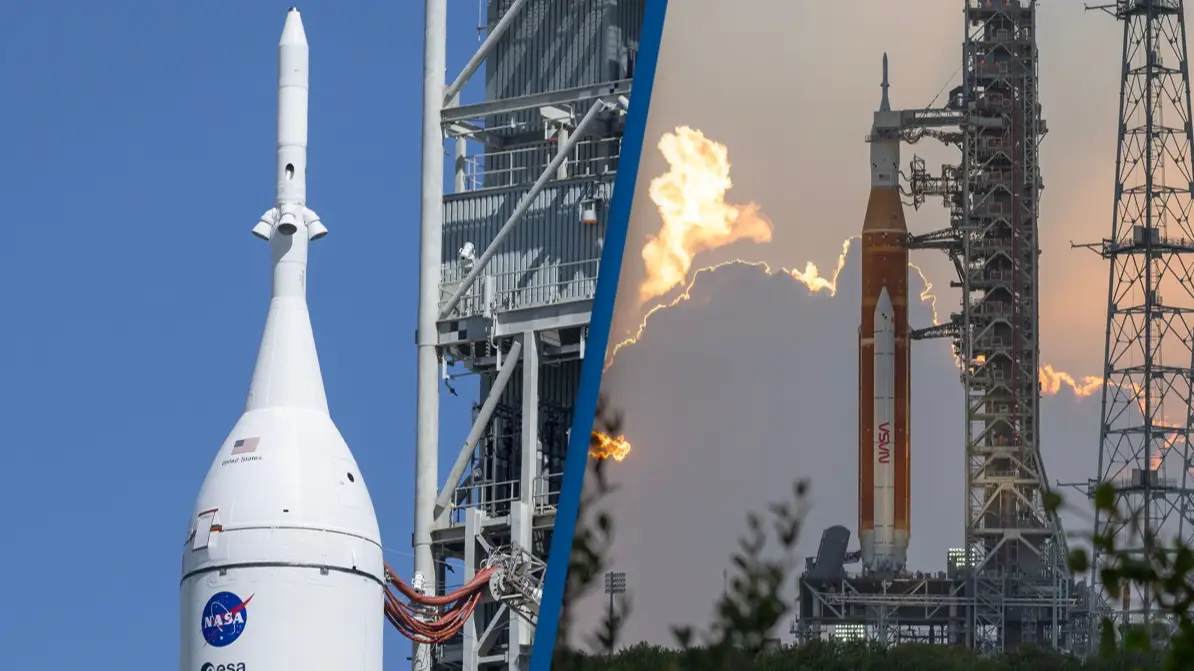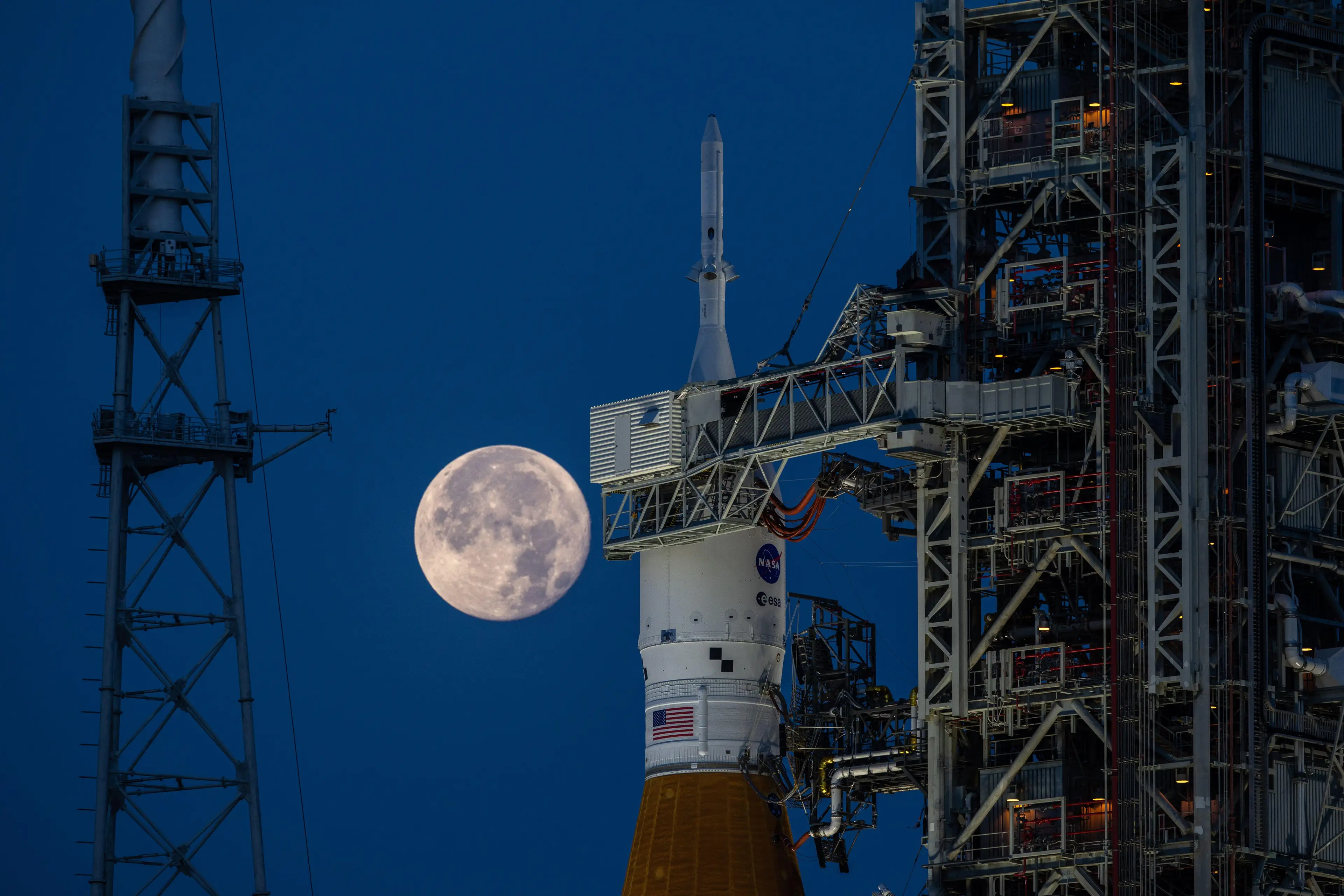
NASA's second attempt to launch their Artemis I mission to the moon has been canceled at the last moment, yet again.
This is due to a leak of its fuel supply, reports say.
NASA took to Twitter to announce the unfortunate news, saying: "The #Artemis I mission to the Moon has been postponed. Teams attempted to fix an issue related to a leak in the hardware transferring fuel into the rocket, but were unsuccessful."
The rocket was due to blast off from Florida's Kennedy Space Center today (3 September), which would have marked it's second attempt following an unsuccessful launch on 29 August.
The uncrewed Artemis I mission was first canceled when a suspected leak was spotted as the Space Launch System (SLS) rocket was being fuelled.
Advert
And then earlier today, which was the postponed launch date, a 30-minute delay occurred after a liquid hydrogen leak was detected in the quick disconnect cavity - this is what feeds the rocket with hydrogen in the engine section of the core stage.
The launch was looking hopeful until NASA announced the cancellation today - a rescheduled date is yet to be announced.
Artemis I is an unmanned mission and will see the Space Launch System (SLS) rocket launch into the atmosphere with the Orion spacecraft on top.

When it is orbiting the Earth, the SLS rocket's advanced systems will give Orion the push it needs to fly to the moon, where it will venture thousands of miles beyond the celestial body for the duration of the four-to-six-week mission.
As NASA stated about the mission: "Artemis I will be the first in a series of increasingly complex missions to build a long-term human presence at the Moon for decades to come.
"The primary goals for Artemis I are to demonstrate Orion’s systems in a spaceflight environment and ensure a safe re-entry, descent, splashdown, and recovery prior to the first flight with crew on Artemis II."
If you have a story you want to tell, send it to UNILAD via [email protected]